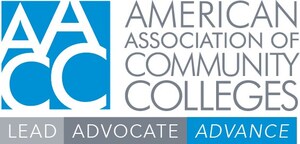SEATTLE, April 22, 2024 /PRNewswire/ --
The following is written by Dr. Rachel Solemsaas, Interim President, North Seattle College, a member of the American Association of Community Colleges.
As stated by the United Nations' Climate Justice Global Alliance, climate justice is the moral and ethical principle that seeks to address the disproportionate impact of climate change on vulnerable communities and future generations.
It calls for a more inclusive and sustainable approach to addressing the global climate crisis.
The question becomes, how do we accomplish this?
Over the past two decades, North Seattle College (NSC) has shown its commitment to sustainability and environmentally responsible practices. NSC has regularly been recognized as a top-performing college in sustainability impact areas, as measured by the Association for the Advancement of Sustainability in Higher Education's Sustainability Tracking, Assessment and Rating System (STARS). NSC also was recognized as an official Fair Trade-certified campus, the second college in Washington state to achieve this status.
While these organizational initiatives are critically important in making a difference when it comes to climate change, what opportunities exist to integrate more sustainable practices into our everyday lives as individuals? Do we take advantage of those opportunities, or do we look at climate change as too big of an issue for any single person to make a difference?
In some ways, this is the impetus behind NSC's approach to climate change. In a partnership with Bellevue College and supported in large measure by the National Science Foundation (NSF), NSC's Climate Justice Across the Curriculum seeks to bring climate justice into focus for every student, no matter the course.
Our students learn about climate change in many of our classes and then they are hungry for what to do with that knowledge and how to connect it within their careers and communities. Climate touches and belongs in every subject we teach, from humanities and art, to business, economics, health sciences and all areas of STEM (science, technology, engineering and math).
The program seeks to build bridges between our disciplines to help faculty incorporate climate justice and civic engagement into their core curriculum, in ways that empower students and encourage student retention and success. Faculty who participate in a climate justice institute or workshop, design an assignment, lesson or module that weaves climate justice and civic engagement into one or more of their classes. This project receives support from the Office of Instruction and the Office of Equity, Diversity, Inclusion and Community at NSC, the Washington State Board for Community and Technical College and a National Science Foundation grant (NSF-DUE 2043535).
The program represents a collaboration with faculty involved in the climate justice projects at NSC and Bellevue College and is an outgrowth of faculty institutes originally created at Curriculum for the Bioregion and a well-established climate justice curriculum program at Bellevue College, led by sustainability leader Sonya Doucette. Our two colleges collaborate on the NSF Improving Undergraduate STEM Education grant called Climate Justice in Undergraduate STEM Incorporating Civic Engagement (C-JUSTICE).
This past March, North Seattle College chemistry instructor Heather Price was honored with the Champion of Sustainability award during the recent Washington Oregon Cascadia Higher Education Sustainability Conference (WOHESC) in Bellingham, Wash. The recognition was given to Price for her exemplary achievement and commitment to advance sustainability through efficiency, conservation and direct action.
There is much work to be done, and we have a long way to go. However, it is hoped that the work we are doing today at NSC can provide a spark to help others find more ways to address climate justice.
Uniquely American, community colleges serve more than 10 million students annually, providing critical access to higher education in academic and workforce development. As the voice of the nation's community colleges, the American Association of Community Colleges (AACC), delivers educational and economic opportunity for more than 10 million diverse students in search of the American Dream. Uniquely dedicated to access and success for all students, AACC's member colleges provide an on-ramp to degree attainment, skilled careers, and family-supporting wages. Located in Washington, D.C., AACC advocates for these not-for-profit, public-serving institutions to ensure they have the resources and support to increase economic mobility for all. https://www.aacc.nche.edu/
SOURCE American Association of Community Colleges

WANT YOUR COMPANY'S NEWS FEATURED ON PRNEWSWIRE.COM?
Newsrooms &
Influencers
Digital Media
Outlets
Journalists
Opted In





Share this article